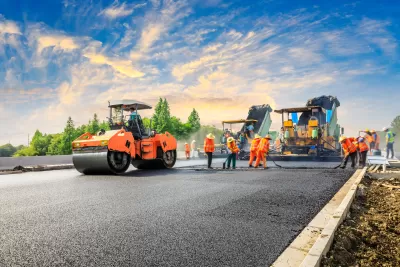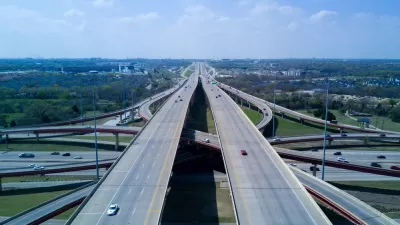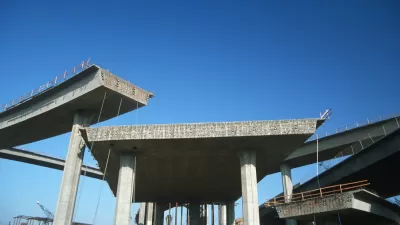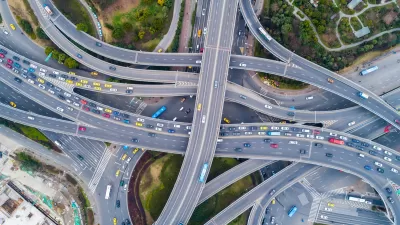A new report says states are creating a “climate time bomb” by spending more than half of federal infrastructure dollars on highway resurfacing and expansion over transit and passenger rail.

When it was passed in 2021, the $1.2 trillion Bipartisan Infrastructure Law was touted as a once-in-a-generation investment in the nation’s infrastructure, from ports, airports, rail, and roads to clean water, internet, and public transit — all with a focus on climate mitigation and resilience, equity, and safety.
However, of the reported funds disbursed to states, more than half (around $70 billion) has gone to resurfacing and expanding highways and just one-fifth has gone to public transit, reports Oliver Milman for the Guardian, citing a new analysis from transport policy group Transportation from America.
The Transportation from America report calls the spending a “climate time bomb” that it says will lead to greenhouse gas emissions of more than 178 million tons from planned highway expansions alone by 2040, only slightly offset by emissions-reducing measures funded by the bill.
“Nothing is fundamentally changing in terms of modes of transport. This much money going into highway expansion is, for one, a liability into the future, and two, it just doesn’t work. We’ve been expanding highways for decades on decades, and everyone consistently finds themselves stuck in traffic,” Corrigan Salerno, policy associate at Transportation for America told the Guardian.
FULL STORY: US spends billions on roads rather than public transport in ‘climate time bomb’

Maui's Vacation Rental Debate Turns Ugly
Verbal attacks, misinformation campaigns and fistfights plague a high-stakes debate to convert thousands of vacation rentals into long-term housing.

Planetizen Federal Action Tracker
A weekly monitor of how Trump’s orders and actions are impacting planners and planning in America.

San Francisco Suspends Traffic Calming Amidst Record Deaths
Citing “a challenging fiscal landscape,” the city will cease the program on the heels of 42 traffic deaths, including 24 pedestrians.

Defunct Pittsburgh Power Plant to Become Residential Tower
A decommissioned steam heat plant will be redeveloped into almost 100 affordable housing units.

Trump Prompts Restructuring of Transportation Research Board in “Unprecedented Overreach”
The TRB has eliminated more than half of its committees including those focused on climate, equity, and cities.

Amtrak Rolls Out New Orleans to Alabama “Mardi Gras” Train
The new service will operate morning and evening departures between Mobile and New Orleans.
Urban Design for Planners 1: Software Tools
This six-course series explores essential urban design concepts using open source software and equips planners with the tools they need to participate fully in the urban design process.
Planning for Universal Design
Learn the tools for implementing Universal Design in planning regulations.
Heyer Gruel & Associates PA
JM Goldson LLC
Custer County Colorado
City of Camden Redevelopment Agency
City of Astoria
Transportation Research & Education Center (TREC) at Portland State University
Jefferson Parish Government
Camden Redevelopment Agency
City of Claremont





























